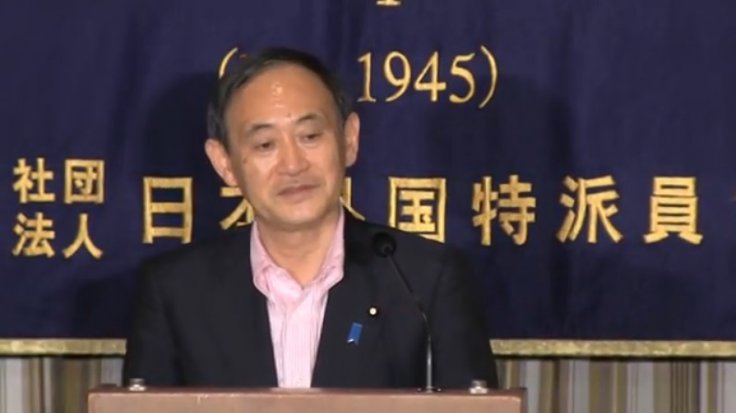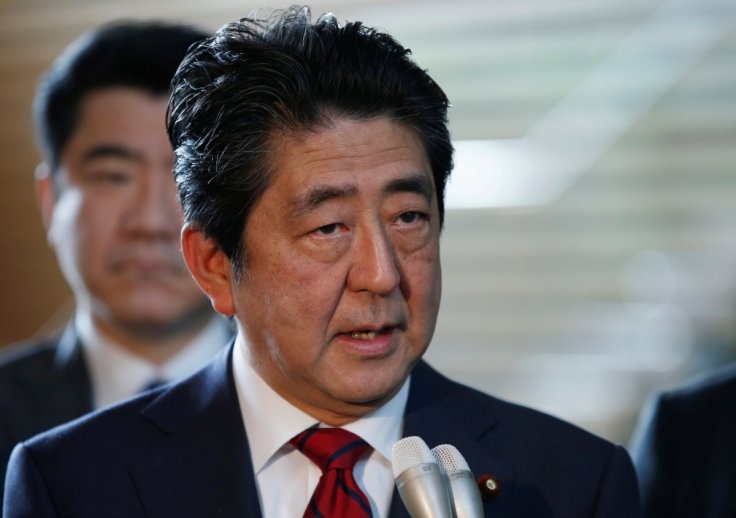Japan's parliament elected Yoshihide Suga as the country's new prime minister on Wednesday, making the former cardboard factory worker and farmer's son the unanimous leader the world's third largest economy. Suga will be replacing longest-serving Prime Minister Shinzo Abe, who abruptly announced last month that he would step down owing to health problems related to colitis.
Suga's name was confirmed as the Prime Minister on Wednesday after he was elected as the leader of the Liberal Democratic Party (LDP) on Monday with about 70% of the votes, replacing Abe. However, he still needed the backing of the Japan's national legislature, the Diet, before he could officially become Prime Minister, which finally materialized on Wednesday.
Expected Win

Suga won the Diet vote with 314 out of 465 votes in the lower house and 142 out of 240 votes in the upper chamber. Given that a coalition headed by his conservative LDP holds the majority in the house, Suga's win was widely expected. The appointment of Suga as Abe's replacement isn't surprising.
Suga was the former Japanese leader's right-hand man during Abe's almost eight years in office throughout his second term, holding the important position of chief cabinet secretary in his government — a combination of chief of staff and press secretary.
The 71-year-old Suga, along with his new cabinet, will later be ceremonially endorsed by the emperor at the Imperial Palace late Wednesday. The next cabinet will is expected to include a large number of former Abe appointees given that Suga is expected to work on the lines of Abe. Suga had not initially disclosed his intentions to run for the prime ministerial candidacy but announced his nomination quite late. However, he was always a strong front-runner after winning the backing of the largest faction of the LDP.
New Leader, New Expectations

Stepping into Abe's shoes looked easy for Suga but things won't be that easy. The media focus will be on Suga and his new cabinet and the policies they implement. Suga takes over as the leader of Japan at a time when the world's third-largest economy is going through a major crisis that includes a jolted trade and commerce sector due to the coronavirus outbreak.
The pandemic has caused the biggest economic slump on record witnessed by Japan following years of economic stagnations. The country is also dealing with a rapidly aging society, with nearly a third of the population older than 65. Suga, however, has promised to carry on much of the previous administration's agenda, including the economic reform program set by Abe and dubbed as Abenomics.
In fact, Suga is known as a successful political operator, who can get things done, and had worked hand-in-hand with the former leader to implement Abenomics. However, challenges still are aplenty for the newly elected premier. Although a second wave of coronavirus infections in the country has largely been brought under control, the disease is still causing major disruptions to the local and global economy. Japan reported its worst GDP fall on record in August amid the global pandemic, with the economy shrinking 7.8% in the second quarter of 2020.
Suga's biggest challenge lies in resurrecting the country's economy. Moreover, Japan is also facing major long-term economic and social issues, such as massive government debt, an area where not much progress was made even during Abe's reign.








